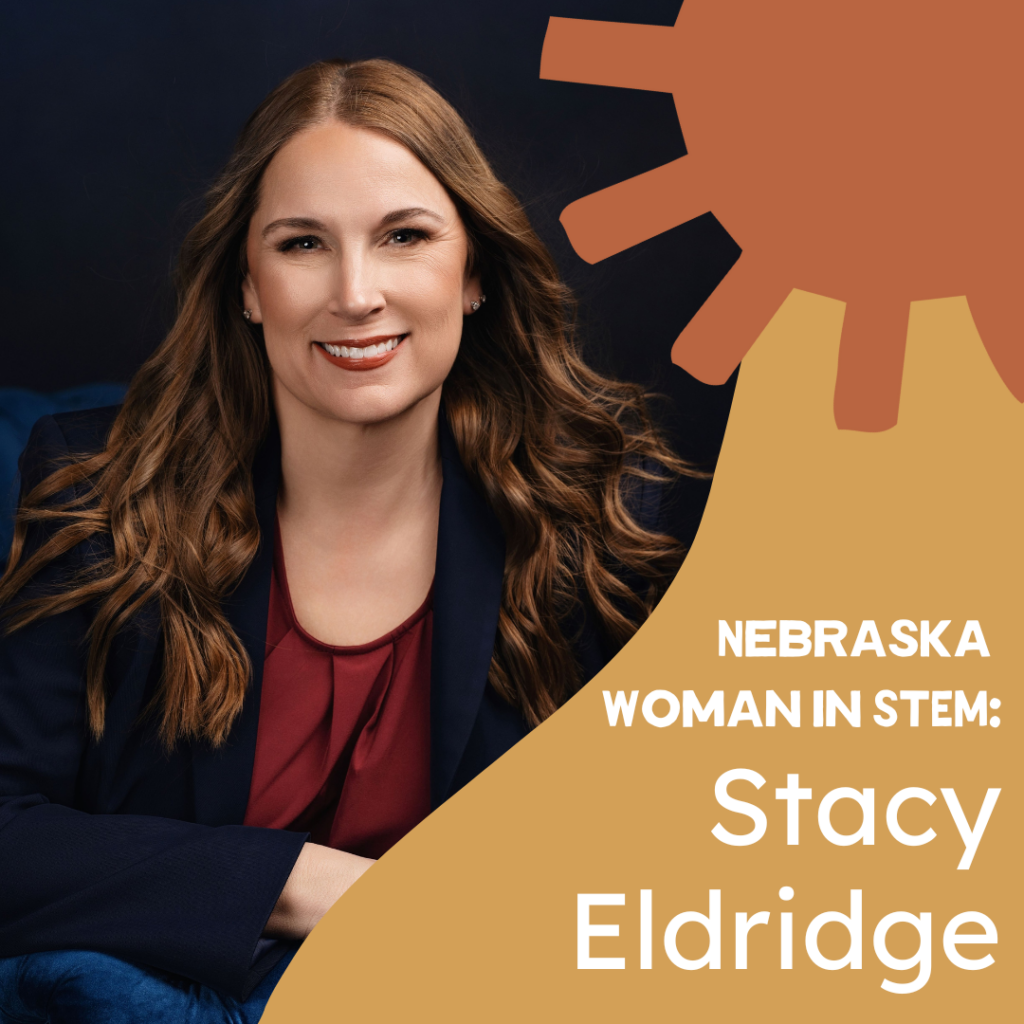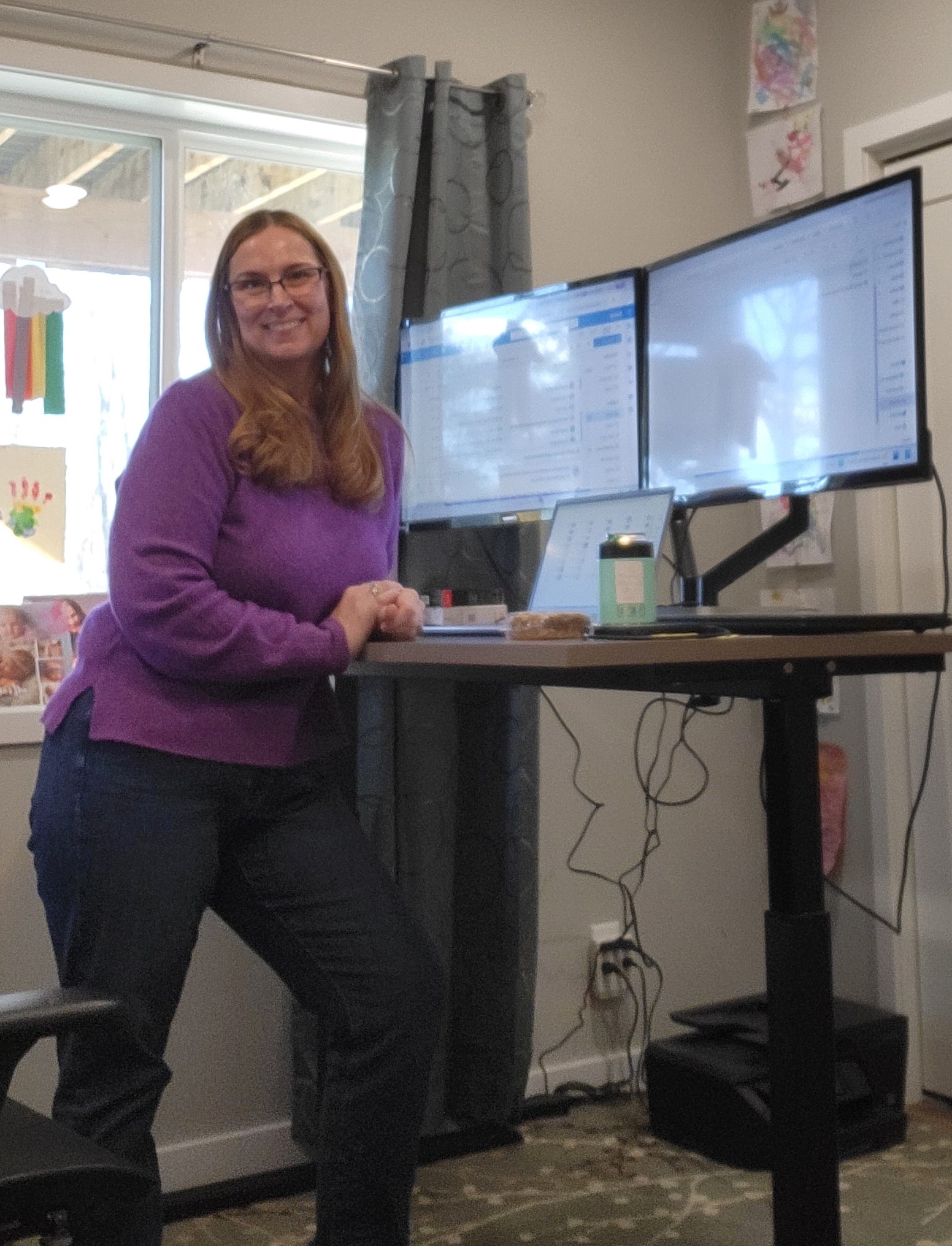Nebraska Women in STEM talked to digital forensics examiner Stacy Eldridge about pivoting tech careers and taking on crime through technology.

“In technology, we are really afforded the opportunity to pivot every step of the way, because there’s always new things coming up.”
Silicon Prairie Cyber Services founder Stacy Eldridge loves the variety of experiences and challenges her career has brought to her.
“I like doing the hard things. What is the challenge? And sometimes, when I feel like I’ve mastered a skill, I think about what I want to do next. Is the challenge in leading people? Or is it the challenge in finding a different technology to do things with now?”
When Stacy started her career pursuing a degree at Bellevue University, she was working full time at what is now Charles Schwab and became a software developer. When there were rumors of layoffs, a friend told her she should join the FBI. Stacy went to the FBI website, applied, and landed a job.
“I tell people I joined the FBI on a whim because it really was a whim.”
She started within the FBI’s information technology program. From there, she entered digital forensics where she examined digital evidence in cases being investigated.
“It was so great, because I’ve always had that interest in making society better, making a difference in my work, and I got to do that every single day in the FBI. I got a sense of humility.”
After 10 years with the FBI, she was ready for a change. She took a job with General Electric running their data loss prevention program across the globe. She used her digital forensics experience in a new way to investigate corporate theft and security on an international scale.
“If somebody’s taking away your business, then that’s going to affect the bottom line, which eventually affects people having jobs.”
Stacy’s next career pivot was to become the Director of Cyber Security for Lincoln Electric System. Her job was to protect their critical infrastructure from those who might want to turn off electricity. “Everybody needs power. It’s critical to all the things we take for granted like the internet, our laptops, and our phones.”
Her last career pivot brough her back to digital forensics and the creation of Silicon Prairie Cyber Services. Now, she’s on the other side of the fence focusing on criminal defense.
Some have questioned this move and ask how she can go from the FBI to defense. “I am a true believer in the fact that the justice system only works if you have competent people on both sides of the aisle. The prosecution needs to have well trained forensic examiners, and the defense needs to have well trained forensic examiners. That keeps us all accountable.”
“There’s just so much data nowadays. I examine if the prosecution looked at everything. Did they miss something, or did they misinterpret things? There’s so much data, we’re all human, mistakes happen. I make sure that everything’s been accounted for.”
Much of her work focuses on cell phone data. Everyone has their phones on them all the time, so the prosecution uses that data to place people at the scene of crimes. They also look at health data and messages tracked by phones.

Stacy has enjoyed the impact she has had throughout her career and has used that impact to advocate for herself. Stacy encourages other women in STEM to similarly track their impact and share it with others if you are looking to advance your career.
“I think we all have a habit of sitting down in our cubicle and working super hard, but it doesn’t matter how much hard work you’re doing if nobody knows it. They can’t get your name out there for those promotion opportunities, whether it’s a different project or a paid promotion.”
Like many women, Stacy struggled with being excluded from conversations male colleagues would have though social outings like playing basketball or grabbing lunch. Stacy was intentional about seeking out and creating opportunities to get herself into conversations or invite others to lunch to build similar relationships in different ways.
“I made sure I had those times to have those one-on-one conversations and advocate for myself.”